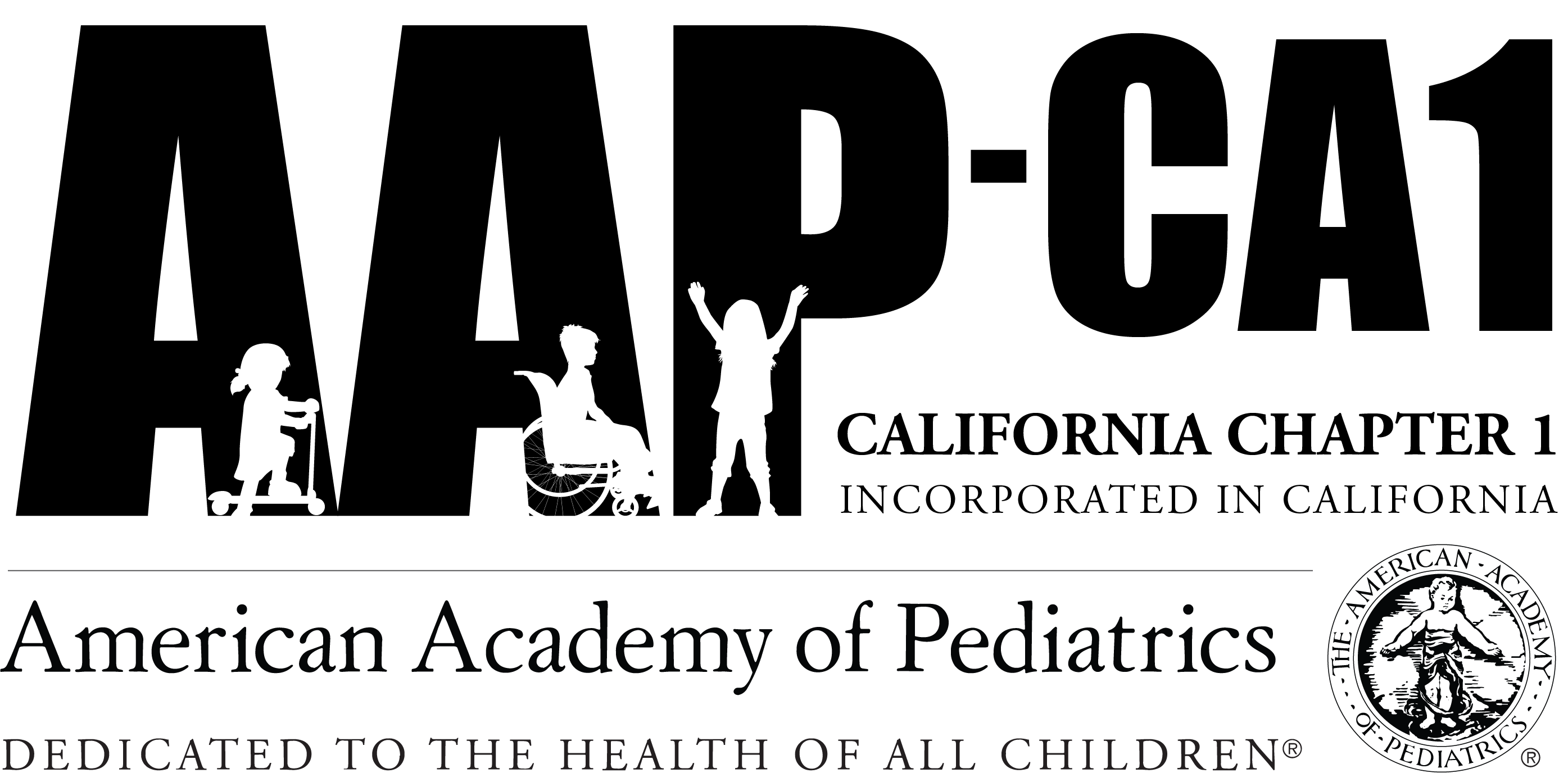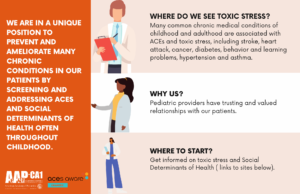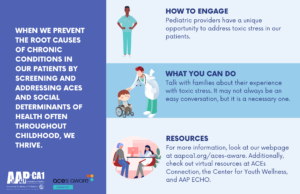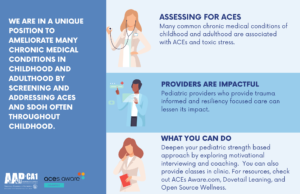The term adverse childhood experiences (ACEs) comes from a 1998 study between Kaiser Permanente and the CDC, which found 10 categories of adversities in three domains experienced by 18 year olds: abuse, neglect, and/or household challenges.
What are ACEs?
The term adverse childhood experiences (ACEs) comes from a 1998 study between Kaiser Permanente and the CDC, which found 10 categories of adversities in three domains experienced by 18 year olds: abuse, neglect, and/or household challenges.
An ACE screening evaluates children and adults for ACEs experienced by age 18:
- Abuse: physical, emotional, and sexual abuse
- Neglect: physical and emotional neglect
- Household challenges: growing up in a household with incarceration, mental illness, substance dependence, absence due to separation or divorce, or intimate partner violence
Why are ACEs significant?
ACEs have a direct effect on adult onset of chronic diseases, but in pediatrics, ACEs have a direct and traumatic effect on childhood development.
By screening for ACEs, providers can better determine the likelihood a patient is at increased health risk due to a toxic stress response.
Learn more at the ACEs Aware website!
Bite Sized Considerations
Addressing Root Causes of ACEs Can Help Us Prevent it in Practice

Many common chronic medical conditions of childhood and adulthood are associated with ACEs and toxic stress. Pediatric providers have a unique opportunity to prevent or at least ameliorate many chronic medical conditions in childhood and adulthood by screening and addressing ACEs and SDOH often throughout childhood. Teaching families how to raise resilient children results in resilient adult will have a lasting impact. The science of trauma and toxic stress' impact on health is a growing field with strong evidence.
Take Action
.
Social Media Toolkit to Share With Your Networks
View Here
Strengthening Families Counteracts Childhood Adversity

Due to the COVID 19 pandemic, everyone is experiencing stressors including anxiety, illness, loss of social contact, and financial insecurities. In addition to this circumstance, children are exposed to adverse experiences that impair their health and development. As pediatricians, we can identify strengths that family already has in coping with adverse experiences and identify potential additional supports, incorporate asking about COVID related stressors, what families are doing to reduce the stress, and what additional support might be helpful to well check visits. Finally, pediatricians should incorporate the PEARLS screening tool into their well child visits to provide a starting point to explore family strengths and needs.
Take Action
Social Media Toolkit To Share With Your Networks
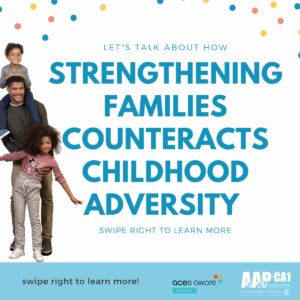
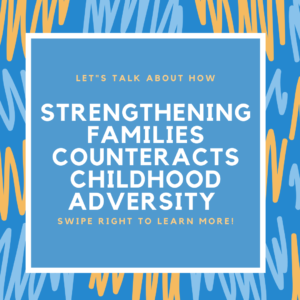
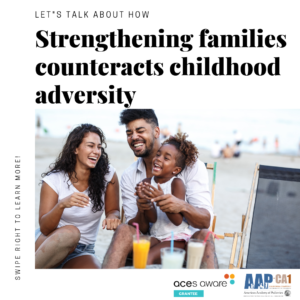
I Want to Learn More About
Below are places to get started in learning about ACEs, and how you can best begin to implement it into your practice.
Resources
Get A Basic Understanding of ACEs
The best starting point to understanding ACEs is to begin with the basic overview of what Adverse Childhood Experiences are, and where to look for them in your practice.
ACEs Connection
For a more interactive overview on ACEs, view this blog site to learn how physicians handle ACEs in their practice, how ACEs transcend to many parts of our lives, and what you can do to help.
